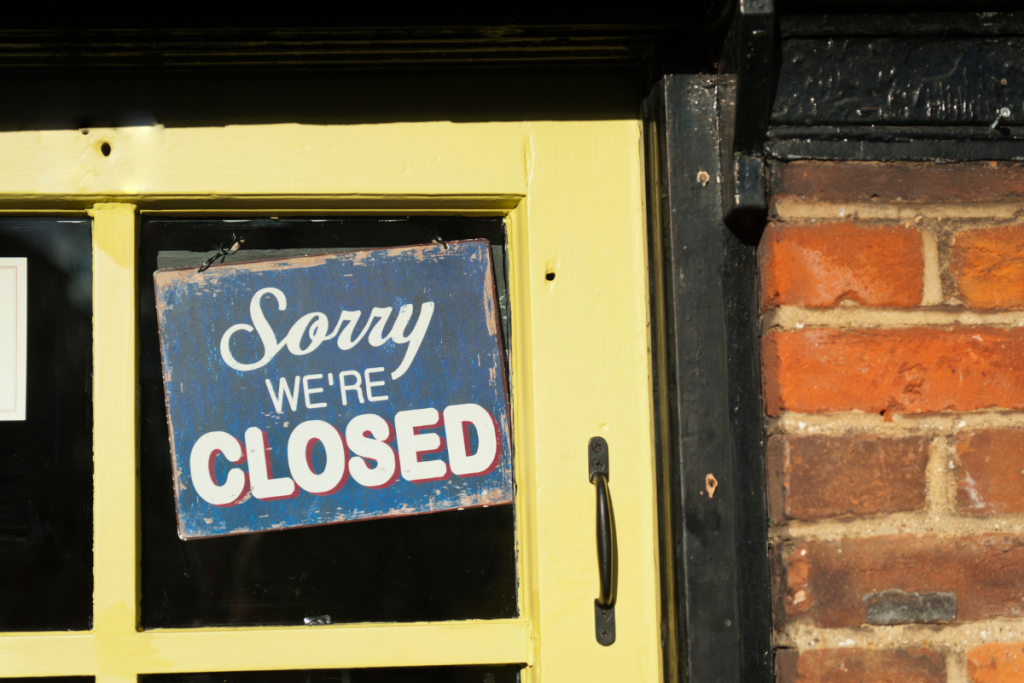Handling HMRC tax errors and mistakes can create anxiety. Her Majesty’s Revenue and Customs is a government department in charge of taxation in the United Kingdom. They hold the responsibility for overseeing all taxes and their collection for individuals and businesses across the UK. As such, they have the power to take action and impose fines. They are however open to the admission of mistakes when genuine and to try and support the correction of these. Correction of self assessment is such an example. They can also be challenged for correction of their own mistakes.
Table of Contents
While HMRC is generally a very-well run department, nobody is perfect – and that includes the UK’s tax authority. Even if you are meticulous in your bookkeeping, mistakes can still be made so where can you turn to for HMRC errors and mistakes guidance.
In this article, we will explain common HMRC mistakes, how you can challenge an error or correct your own.
HMRC’s Functions?
HMRC is a huge organisation with many different functions. These include:
- Tax collection – This includes income tax, corporation tax and capital gains tax
- PAYE (pay as you earn) administration – This covers the payment of employees’ taxes through their salaries
- National Insurance contributions – These are compulsory payments made by employees and employers and are used to fund state benefits such as the NHS
- Customs and Excise duties – These are taxes levied on imported goods
- Administration of Stamp Duty Land Tax – This is a tax paid on property purchases
- Other miscellaneous functions – Such as regulating the alcohol and tobacco industries, and administering the government’s tax incentives and reliefs scheme
All of these are very important functions that contribute to the smooth running of the country. However, as with any large organisation, mistakes can sometimes be made.
Common HMRC Mistakes
One common mistake that HMRC makes is miscalculating taxes. This can happen for a variety of reasons, such as incorrect information being inputted into their system. If you believe that your tax bill is incorrect, you should contact HMRC as soon as possible so that they can investigate the matter and correct any errors. A common error is that they have been given the wrong information in order to undertake their calculations. The first step should always be to check you ‘own homework’ first. Make sure that what has been submitted is what you intended.
PAYE (Pay As You Earn) is another common point of errors creeping in. PAYE is the system by which an employer calculates and deducts income tax and national insurance contributions from an employee’s wages. Errors can pop into the PAYE system. This may be made from the calculation of the tax amounts, hours, tax codes, NI contributions etc.
Again,if you think that this may have happened to you, you should contact HMRC as soon as possible.
The HMRC computer system is fairly robust and is obviously dedicated to its role. This would suggest that it rarely makes mistakes. Like all computer systems, occasionally programming goes astray and errors creep in. In the first place, speak to HMRC, so that this can be looked at.
It is not necessary to raise formal complaints in the early stages. Flagging problems and discussions, either directly, or often more helpfully, through your accountant, who is likely to be able to describe the problem in more detail and have the appropriate evidence to hand, is usually all that is needed. Escalation can be considered if that doesn’t work but trying to keep the process informal is usually the easiest.
Commonest Self Assessment Tax Return Errors Leading to Errors
- Incorrect Figures – Yes, it can be as simple as a zero in the wrong place. Simple mistakes still remain very commonplace on tax returns
- Incomplete information – Just as bad as the wrong information is no information at all.
- Missing NI or UTR numbers – Digitally this is becoming harder to avoid but incorrect numbers can cause chaos.
- Over-claiming on expenses: Make sure you are clear between business and personal expenses and your claim limits.
- Missing additional income: If this is deemed deliberate it can lead you into trouble for tax avoidance. Remember to include any additional work, income from shares or savings or any inheritance.
Consequences of HMRC Mistakes?
The consequences of HMRC mistakes can obviously be very serious for individuals. Having to find finances, after presuming taxes were settled can put a big strain on an individual, a family or a business. In the same way, if you have been overcharged on your taxes, this could leave you out of pocket and in a difficult financial situation. Similarly, if PAYE errors have been made, this could result in you being unable to claim certain benefits or entitlements.
If HMRC has mistakenly found you to have underpaid on taxes, you may be liable for interest and penalties. This could end up costing you a significant amount of money. In some cases, HMRC may then even take further legal action against you.
How to Challenge an HMRC Mistake
If you think HMRC has made a mistake on your tax return, you can challenge their decision. This is called filing a ‘notice of enquiry’. To support your claim that HMRC made a mistake, you’ll need to provide evidence. Without evidence, HMRC may not listen to your complaint.
You can file a notice of enquiry by contacting HMRC directly. After you submit your evidence, HMRC will review your case and make a decision. If they agree they made a mistake, they’ll correct it and refund you if needed.
If you’re unsatisfied with HMRC’s decision, you can appeal by writing to them within 30 days. This usually involves sending a written statement explaining why you’re appealing, along with any evidence you have. You can also request an oral hearing if you think it would help.
What Evidence You Will Need
If you are going to challenge an HMRC decision, it is important that you have evidence to support your claim. This could include things like bank statements or payslips. You will need to make sure that your evidence is clear and concise so that HMRC can understand your complaint.
Keeping good financial records is important for everyone, but it’s especially critical if you’re self-employed. Your taxes work differently than someone who’s employed. HMRC can ask to see your records at any time.
When you’re self-employed, you pay taxes through something called Self-Assessment. This means you have to report your income and pay the right amount of tax yourself. You also have to fill out a self-assessment form each year. That’s why keeping organised, detailed records of your earnings and expenses is so important. You’ll need those records to accurately complete the form.
Common Employer Mistakes on PAYE
As well as HMRC making an error, employers can also make a number of mistakes when it comes to PAYE submission. One common mistake is not issuing employees with the correct tax code. This can happen if an employer does not have up-to-date information about an employee’s circumstances and this will naturally lead to a tax error..
Employers may also make mistakes when it comes to reporting employee pension contributions. This can commonly happen if an employer does not have the correct information about an employee’s pension scheme.
How to Rectify These Errors
If you are an employer and you have made a mistake with PAYE, you should contact HMRC as soon as possible and admit your mistake. Don’t worry – they usually don’t bite! They will be able to help you rectify the error and avoid any penalties or interest charges.
It is also important to keep up-to-date with changes to tax law and HMRC guidance. This will help you to avoid making mistakes in the future.
Potential Penalties
If you are an employer and you make a mistake with PAYE, you must be aware that you may be liable for any penalties. The amount of the penalty will depend on how serious the mistake is, what led to it, how quickly it was reported and whether it was deemed deliberate.
Employers can also be penalised for not issuing employees with the correct tax code or for deducting the wrong amount of tax from their wages.
How to Build a Good Relationship with HMRC
It is important to have a good relationship with HMRC if you want to avoid making mistakes with your taxes. This can be achieved by following the correct procedures and complying with all of their instructions. As with any relationship, it is important to be as honest and open as you can be. Keeping in touch, either directly or through your accountant, can be invaluable as they will be able to support and guide and see that you are working to achieve the same goal as them – The correct result!
As noted above, you should also stay up-to-date with changes to tax law or HMRC guidance so that you can to avoid future mistakes.
As with all of this article the main message is that mistakes happen. Do not try to cover them up. Be open and honest. Flag them as soon as you notice with your accountant and the HMRC and work with them to make amends.
Tips for Doing Your Taxes
There are a number of things that you can do to make doing your taxes easier. One is to keep accurate records of all your income and expenses throughout the year. This will help you to complete your tax return accurately and without any stress. You should also familiarise yourself with the tax system and understand how it works. This will help you to make sure that you are paying the correct amount of tax. There are many accounting packages now and these, whilst seem demanding through the year, will make the end of year markedly easier and less error prone. Formal software packages often flag legal changes and support you with the wider process.
Tax support can come from various people with subtly different skill sets:
- Tax lawyers – They can provide you with advice on tax law. This can be helpful with regard to your business and how to operate your taxes overall. They can also be very helpful in resolving any disputes that you may have with HMRC.
- Tax accountants – These are often your first port of call. They can help you to prepare your tax return and make sure that you are paying the correct amount of tax. They often also have a good relationship with the HMRC and can start informal conversations where there are any difficulties.
Don’t forget that the HMRC themselves can be a good support directly to you. They have a number of online resources that can be very helpful. Their helpline offers you access to advisors where you can ask any questions that you have about your taxes and help you to avoid making mistakes.
Final Thoughts
Making mistakes on your taxes can lead to big penalties and a lot of stress. But you can avoid errors by following the right steps and getting advice from pros. The main thing is if you realise you made a mistake, be upfront about it as soon as you can. Usually that means telling your accountant first, and then HMRC.
If you think HMRC made a mistake, you can challenge them. I hope this guide on dealing with HMRC errors and mistakes has been helpful and answered your main questions. If you still have any other concerns, reach out to HMRC directly. They can provide guidance on your specific situation.


















































































































































